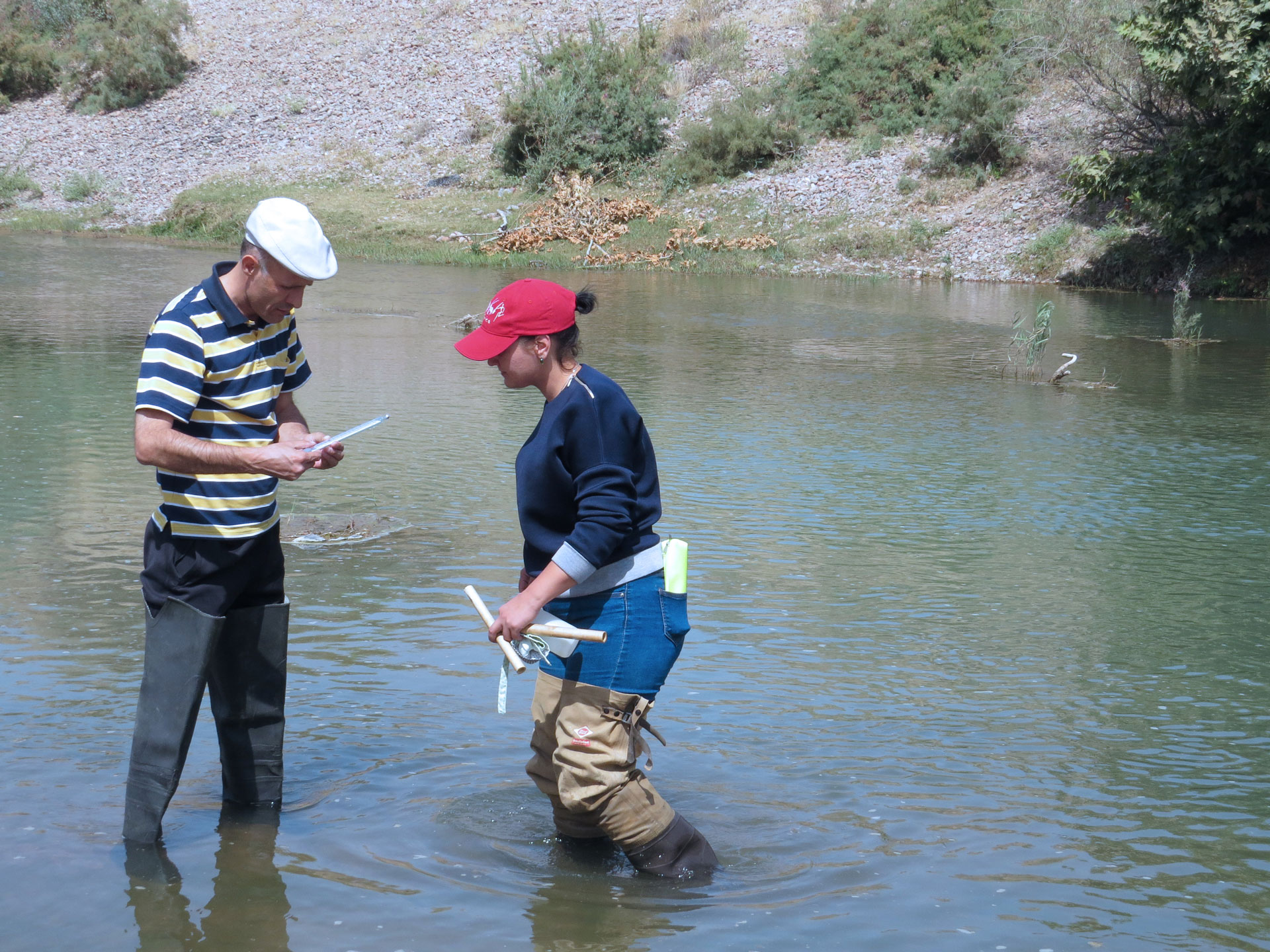
On September 6-7, a study-tour on hydrobiological analysis for specialists of national hydrometeorological departments of Kazakhstan, Kyrgyzstan and Tajikistan was held in Tashkent. The event took place at the Center for Hydrometeorological Service under the Ministry of Emergency Situations of the Republic of Uzbekistan (Uzhydromet) within the project “Strengthening cooperation on water quality management in Central Asia”, implemented by UNECE. The seminar was organized in cooperation with CAREC with the financial support of FinWaterWEI Program.
The quality of water acts as a characteristic of its structure and features, which determines if water is suitable for specific use. The main goal of the tour is to exchange experience and to study the methodologies of Uzhydromet. The specialists visited the training workshop and took part in the selection and analysis of hydrobiological samples.
It should be noted that Uzhydromet laboratory is one of the few in the region where specialists conduct hydrobiological monitoring on an independently developed methodology and can share their experience with other Central Asian countries.
“Our laboratory has been functioning since 1972. We have developed methods for selecting hydrobiological samples and determined the levels of pollution. In addition, there is an original form of the journal that allows conducting several visual assessments: the state of the watercourse, the ecological state and the risk to humans,” said Mr Vladislav Talskikh, the head of the information department of the environmental pollution monitoring service.
On the first day of the event, the participants learned about the sampling process for hydrobiological tests and asked other related questions. In turn, experts of the Uzhydromet laboratory told about their work and gave some practical advice to their Central Asian colleagues.
“For visual assessment, we always use personal experience - what do your eyes see? What is the situation around the watercourse where the sample is taken? After carrying out such an assessment of the territory and watercourse, answering the simplest questions in the journal, you will be able to understand by 50% what the result of the sample will be,” noted Ms Olga Gerasimova, the head of the Hydrobiological Laboratory of Uzhydromet.
.jpg)
Laboratory staff also emphasized that the hydrobiological analysis is very detailed and should be carried out by a scrupulous specialist. The correct analysis can show the previous state of the watercourse, as well as “tell” about all the significant changes, including those related to climate change. It takes a specialist from 30 minutes to two hours to conduct a sample for water quality, depending on the complexity of it. Thus, 150 samples can be processed on average per year. The specialists of the Uzhydromet laboratory conduct about 137 samples in Tashkent region on 10 water objects annually from March to November.
After the theoretical part and equipment, the participants went to the Akhangaran river to collect samples for further analysis. After collection, the participants got acquainted with the process of preparation of hydrobiological samples for analysis in Uzhydromet laboratory.
On the second day of the seminar, the specialists of the national hydrometeorological and nature protection agencies of the region learned more about the implementation of the joint UNECE-CAREC project. Also, participants were told about the activities of hydrobiological laboratory and methods of hydrobiological monitoring of Central Asian objects held there.
“These two days were very busy and productive. The gained knowledge will certainly be used by us in future work. I would like to mention that it would be great to have the opportunity to train in Uzhydromet the hydrobiologists from Central Asian countries in the long term,” shared his impressions the seminar participant Mr Saddam Khasanov, the Head of the Environmental Monitoring Department of the Agency for Hydrometeorology of the Committee for Environmental Protection under the Government of the Republic of Tajikistan.
“Strengthening cooperation on water quality management in Central Asia” project is carried out for ensuring the sustainability of results obtained with “Water quality in Central Asia” project, implemented by CAREC and UNECE in 2009-2012. The aim of that project was to promote the development of an effective and coordinated national policy on water quality in the aspect of integrated water resources management in Central Asia.
.jpg)
